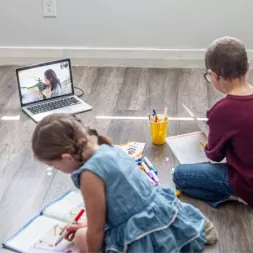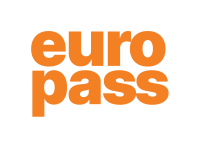
Engage Your Students with Blended Learning Activities
Participants will learn to efficiently use digital technology as a tool to encourage student agency and participation in both face-to-face and remote teaching. They will also discover techniques for encouraging students to become autonomous, and they will gain confidence in designing educational activities and materials.
Description
In the current educational landscape, traditional classrooms are no longer the exclusive venues for purposeful and engaging learning. Nowadays, learning occurs in diverse settings, encompassing physically distanced classrooms, online learning spaces, hybrid environments accommodating both on-site and remote students, learning videos, and the flipped education model. This shift underscores the evolving nature of education, transcending the confines of conventional classroom instruction and textbooks. How much do you feel at ease in teaching in these new settings? This course will provide effective training on how to create engaging activities for students in all of these learning contexts. By its end, you will know how to create personalized, engaging activities to boost your students’ participation, reflection, and collaboration, no matter where their learning happens. As a participant, you will learn to efficiently use digital technologies to promote student agency and participation in both face-to-face and remote learning (e.g., by creating simple games to increase student motivation). Together, we will discuss how to encourage students to be autonomous and become creators of new content. You will also acquire a practical understanding of how to provide students with a choice so that they can set their own goals, and take responsibility for all the relevant segments of their learning. Finally, participants will analyze effective techniques for making assessment an integral part of learning, and explore new strategies to let students demonstrate a deeper level of understanding....read more.
Learning objectives
The course will help the participants to:
- Identify pedagogical challenges in different learning environments;
- Analyse the benefits and challenges of flexible learning spaces;
- Explore active learning formats and strategies to increase student engagement;
- Reflect on the pedagogical value of digital tools;
- Design learning activities to enhance student engagement and participation;
- Create digital materials to provide students with choices and to boost the personalization of learning;
- Gamify classroom activities;
- Explore techniques for assessment of student performance;
- Apply strategies to foster well-being and self-regulation.
--> Download all course info in PDF <--
Methodology & assessment
Certification details
Here's how we ensure your achievements are recognized and validated:
- Certificate of Attendance: Upon successful completion of your course, you will receive a Certificate of Attendance in line with Erasmus quality standards.
- Europass Mobility Certificate: If requested, you can also receive the Europass Mobility Certificate.
- Seamless Administration: We provide assistance and guidance to our participants throughout every step of the project: from the grant application to the final documents.
To make your participation accessible, our courses are designed to allow you to request 8 days of individual support for your subsistence costs. This includes 6 days for the course and an additional 2 days for travel.
Useful resources:
- Live Chat support: Monday-Friday | 8:30-22:30 CET
- FAQ
- Guides to Erasmus+
- OID Numbers and Fiscal Data
A 60 € late registration fee will be applied if you register less than 8 weeks before the course start date.
Pricing, packages and other information
-
Price:480Euro
Additional information
-
Language:English
-
Target audience ISCED:Primary education (ISCED 1)Lower secondary education (ISCED 2)Upper secondary education (ISCED 3)
-
Target audience type:TeacherHead Teacher / PrincipalPedagogical Adviser
-
Learning time:25 hours or more
Past sessions
More courses by this organiser

From STEM to STEAM Education: A New Learning Approach

Learning Through Collaboration and Cooperation


